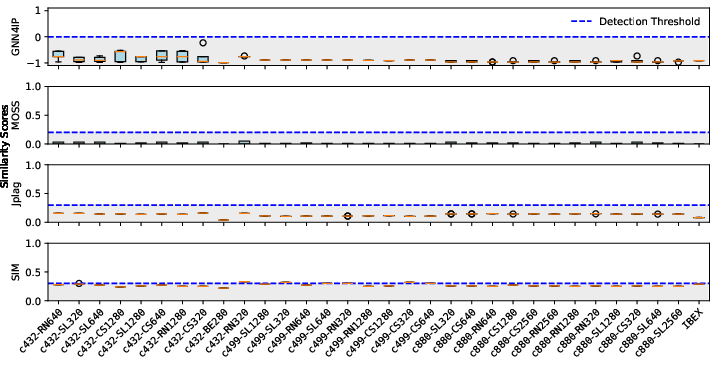LLMPirate: LLMs for Black-box Hardware IP Piracy
Abstract: The rapid advancement of LLMs has enabled the ability to effectively analyze and generate code nearly instantaneously, resulting in their widespread adoption in software development. Following this advancement, researchers and companies have begun integrating LLMs across the hardware design and verification process. However, these highly potent LLMs can also induce new attack scenarios upon security vulnerabilities across the hardware development process. One such attack vector that has not been explored is intellectual property (IP) piracy. Given that this attack can manifest as rewriting hardware designs to evade piracy detection, it is essential to thoroughly evaluate LLM capabilities in performing this task and assess the mitigation abilities of current IP piracy detection tools. Therefore, in this work, we propose LLMPirate, the first LLM-based technique able to generate pirated variations of circuit designs that successfully evade detection across multiple state-of-the-art piracy detection tools. We devise three solutions to overcome challenges related to integration of LLMs for hardware circuit designs, scalability to large circuits, and effectiveness, resulting in an end-to-end automated, efficient, and practical formulation. We perform an extensive experimental evaluation of LLMPirate using eight LLMs of varying sizes and capabilities and assess their performance in pirating various circuit designs against four state-of-the-art, widely-used piracy detection tools. Our experiments demonstrate that LLMPirate is able to consistently evade detection on 100% of tested circuits across every detection tool. Additionally, we showcase the ramifications of LLMPirate using case studies on IBEX and MOR1KX processors and a GPS module, that we successfully pirate. We envision that our work motivates and fosters the development of better IP piracy detection tools.
Paper Prompts
Sign up for free to create and run prompts on this paper using GPT-5.
Top Community Prompts
Collections
Sign up for free to add this paper to one or more collections.


